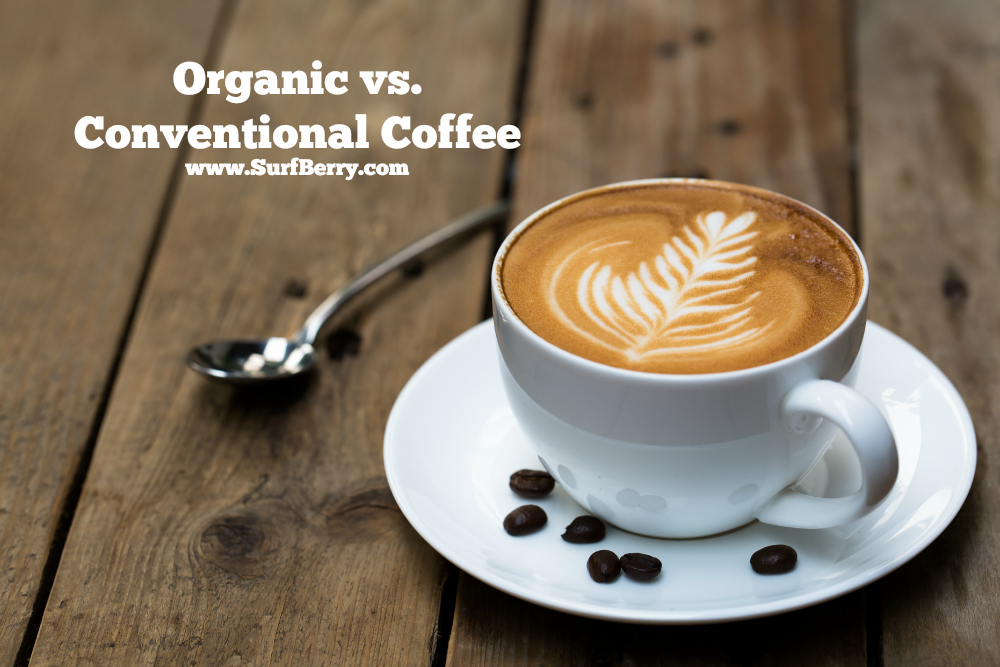
Coffee is one of the most popular beverages in the World. In fact, it is said that over 50% of the American population drinks at least a cup of coffee daily, which means over half of you reading this enjoy your morning cup o’ Joe. While it’s all well and good to drink a cup of coffee daily, it’s important to make sure you are drinking quality organic coffee as opposed to conventionally grown coffee. Here at SurfBerry we only serve organic coffee, so we wanted to take some time to explain the importance of Organic vs. Conventional Coffee.
Organic vs. Conventional Coffee: Health Benefits
The biggest difference between organic and conventional coffee beans is that organic coffee beans don’t use any toxic pesticides during the growing process. Pesticides kill so many of the health benefits that coffee can provide, such a high levels of antioxidants. The antioxidants found in coffee may be able to help fight off cancer, heart disease, and diabetes, so it’s important to have those antioxidants in tack. According to the Environmental Protection Agency, “30 percent of insecticides, 60 percent of herbicides and 90 percent of fungicides are carcinogenic, or cancer-causing. Pesticides and other conventional farming chemicals accumulate in body fat, and can cause damage to the nervous and reproductive systems. These chemicals can also disrupt hormone and immune-system function.” (Source)
Coffee can offer an array of other health benefits, too. It is known to increase alertness, speed up your metabolism, and enhance your memory. Just make sure that you purchase good quality, organic coffee so that the benefits aren’t outweighed by toxic pesticides.
Organic vs. Conventional Coffee: Environmental Benefits
Because coffee beans are readily grown in many parts of the world, it’s important to keep the environment healthy and bountiful for future generations – organic farming practices do just that. By not using toxic pesticides, combined with a variety of organic farming practices such a building up the soil with nutrients and crop-rotation, organic coffee beans are grown in a much more sustainable way.
Many of the areas where coffee is grown are lush, tropical environments like Latin and South America, and Southeast Asia. Organic farming practices, and the farmers who abide by them, take the overall environment into consideration, which conventional coffee farms tend to de-forest these tropical areas. Deforestation takes all of the nutrients out of the soil, increases the use of pesticides, and makes convention coffee far more damaging to the environment. (Source)
